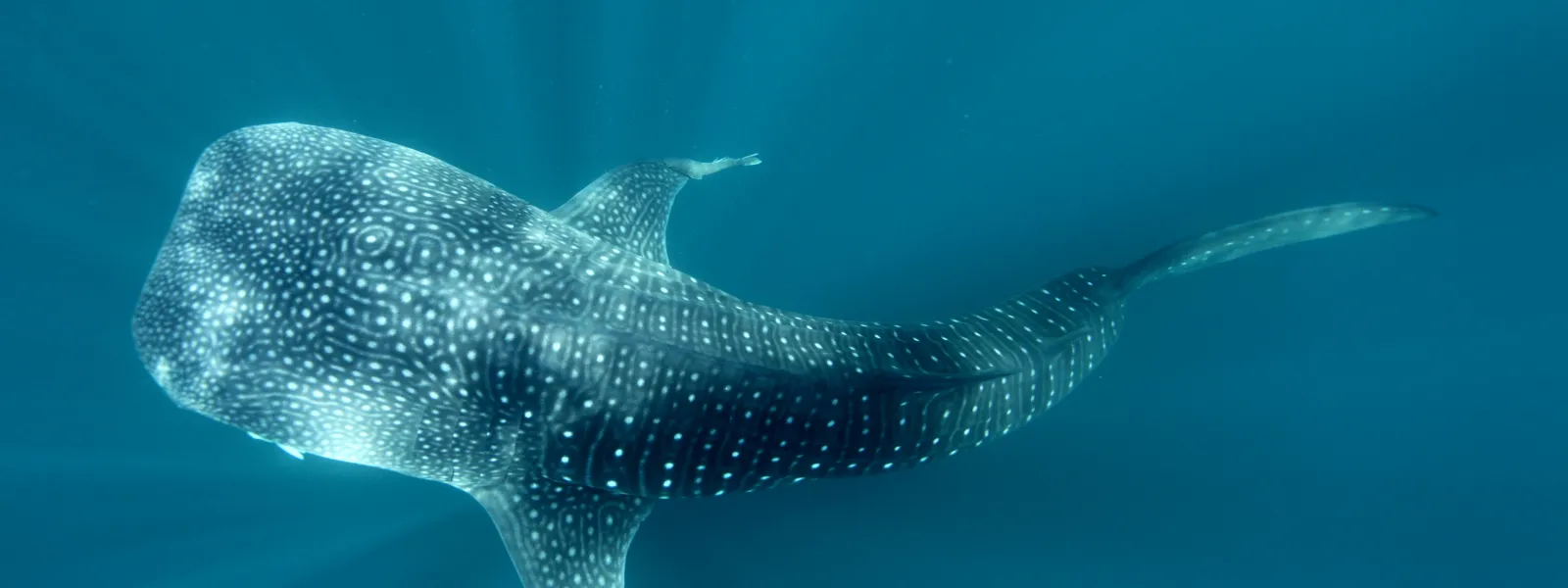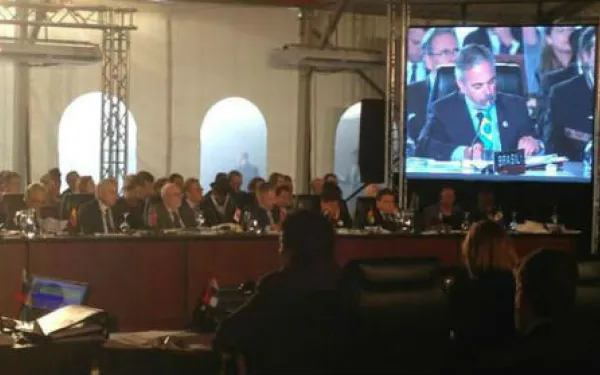
Project
Photo: Carlos AguileraProtecting the rich marine life of Cabo Pulmo Reef
Cabo Pulmo Reef, a 20,000-year-old ecological treasure in Baja California Sur, Mexico, hosts many of the 800 marine species in the Sea of Cortez.
Overfishing almost killed it in the 1980s. But the Mexican government intervened in 1995 to declare it a national park. Since then, the reef has grown, and the surrounding ecosystem has prospered.
Developers repeatedly try to build enormous tourist resorts at Cabo Pulmo. The proposed resorts typically include tens of thousands of hotel rooms, golf courses, an airport, sports clubs, and more—and require new housing development for thousands of employees.
Coral reefs like Cabo Pulmo are extremely vulnerable to the impacts of such poorly planned development. Sewage and wastewater runoff cause a surge in the growth of algae that blocks sunlight, causing the reef to bleach and die.
Fertilizers, herbicides, and pesticides from golf courses contaminate ocean currents and upset the delicate ecological balance of the area. Boating, fishing, and diving stress and break reefs, too.
In an area where water is scarce, tourism infrastructure projects could overexploit aquifers that are already suffering the impacts of climate change.
AIDA's work has been instrumental in ensuring the survival and health of Cabo Pulmo's ecosystems. We continue monitoring the situation and working with national partners to make legal protections for the reef stronger and permanent.
Partners:

Related projects
México failed to attend the Green Climate Fund’s fourth Board meeting
Senator Ernesto Cordero, Mexico’s representative on the Board, must be held accountable for his failure to attend a key event for establishing financial support for fighting climate change. Mexico City, Mexico. Senator Ernesto Cordero, Mexico’s representative on the Green Climate Fund (GCF) Board, missed the fourth meeting of the entity, held June 25-28 in Songdo, South Korea. At the meeting, Board members started setting the rules of operation of the Fund, a financial mechanism essential for developing countries to secure the financial support needed to combat climate change. According to the GCF Secretariat, Cordero’s absence was because he had to attend important sessions of the Mexican Congress. Also missing at the Songdo meeting was Chile, the alternate member for Mexico. Chile’s representative also informed the Secretariat of his inability to attend the event. With the absence of both of these countries, one of the seats held by Latin America on the GCF Board was left empty. The Board consists of 24 members: 12 representatives from developing countries and an equal number from developed nations. Each member has an alternate who may participate in the Board meetings without voting rights unless they assume the role of the Board member. Latin America has three seats on the Board, broken down by regional groups: Colombia is paired up with Peru, Belize with Cuba, and Mexico and Chile. Each pair also represents other countries. In this regard, Mexico and Chile’s absence from the fourth meeting jeopardizes the interests of the Latin American countries represented by the duo, which includes Brazil and Argentina. It also contradicts the active role Mexico has played in recent years in climate change negotiations worldwide. What is more, a good opportunity was missed to influence the decisions taken in South Korea. The Fund is being developed to become a main source of financial resources to combat climate change, and at this Board meeting critical decisions were taken to this end. These included decisions on the Fund’s mission, the results and performance indicators to follow, procedures for access, home ownership, financial instruments, structure and organization, among others. The formation of the Green Climate Fund must meet the needs of all regions, but especially those in Latin America. Mexico, Chile and the other countries with a seat on the Board must commit to be active and efficient participants, and to be consistent with their national policies on climate change. It is of utmost importance to ensure the involvement of Latin American governments in international spheres like the GCF because this will ensure effective benefits for the people of this region. For more information on the Green Climate Fund, visit this page.
Read more
An evaluation of the OAS General Assembly and its relationship to the environment
By Astrid Puentes Riaño, co-executive director, AIDA, @astridpuentes The first week of June every year, the General Assembly of the Organization of American States (OAS) – made up of the foreign affairs ministers of its 34 member states – meets to discuss and address the hemisphere’s priority issues. For 2013, the central theme was: “For a comprehensive policy against the world drug problem in the Americas.” The city of Antigua, Guatemala hosted the June 4-6 event. In addition to the central theme, relevant administrative issues were addressed such as the election of commissioners to the Inter-American Commission on Human Rights (IACHR) and the approval of two conventions against discrimination and in favor of tolerance. This year, as in 2012, I had the honor of attending the assembly as a civil society observer. My objectives this year were: 1) to monitor the process of “strengthening” the Inter-American System of Human Rights (IASHR) which ended at the extraordinary assembly last March, and 2) to participate in the process of including an environmental focus in the debate on drug policy by contributing AIDA’s experience in monitoring the programs to eradicate coca and opium poppies in Colombia (1999-2007). These are my conclusions on the event from four different angles: What turned out well J The Assembly Declaration on the need to evaluate the so far failed drug policy: The states recognized the policy’s negative impacts on both the environment and human rights as well as the importance of taking them into consideration in future solution initiatives. The "Inter-American Convention against Racism, Racial Discrimination, and Related Forms of Intolerance" and "Inter-American Convention against All Forms of Discrimination and Intolerance" were adopted and opened for signature. We hope both conventions are ratified, upheld and implemented by all of the states in order to eradicate actions that threaten the dignity and life of any person. The culmination of the process of “strengthening” the IASHR that started in 2011: As regards this issue, I will limit my comments to recalling that far from strengthening the system, the proposals from certain states threatened to weaken it (please see my previous post). In March, important reforms to the IACHR were agreed on and will be applied beginning in August. Although those changes were not in force, certain states sought additional ones. Given that a state of constant reforms is destined for failure, it was positive that for the moment the states did not agree to make new revisions to the IACHR or to the Inter-American Court of Human Rights. Another positive element was the frank and open dialogue (though at times difficult) held by the states, IACHR, the Inter-American Court, civil society and other system users. There were many issues that remained outstanding, but the important thing is to strengthen dialogue in which the users of the IASHR and interested parties can participate effectively, and in which the real protection of human rights is the only guide. With regard to the election of the IACHR commissioners, the six candidates presented their proposals on May 1 in a forum held by the Permanent Council. Despite the inappropriateness of the chosen date – the hemisphere (excepting the northern part) was celebrating International Workers’ Day (also known as May Day), we listened to the candidates (all men this time) and learned about their perspectives regarding the IACHR. This should be a systematic practice in all OAS elections. What I did not like The lack of clarity and interruptions in spaces assigned to civil society: I recognize that progress has been made toward the greater and more significant participation of this sector in the OAS even though the mechanisms are still far from being perfect. Two examples in the assembly in Antigua, which we hope do not recur in the future, illustrate this: 1. During the civil society dialogue with Mr. José Miguel Insulza, secretary-general of the OAS, one state representative took the floor. Regardless of the subject of this intervention, this goes against the definition of the space, which is open only to the OAS secretary and civil society delegates. This is a point that requires immediate improvement. 2. In the dialogue between civil society and the foreign secretaries, the situation became complex. It is customary that, due to the short amount of time available for interventions (a total of 20 minutes this time), the organizations decide beforehand the issues and speakers. On this occasion, a group of organizations insisted on taking the floor even though their issue had not been chosen. Despite this, one additional person was given the floor without previous coordination or agreement. Although this was an attempt to air the perspectives of a diverse group, as is civil society, it opened the possibility of delegitimizing the efforts of hundreds of organizations to organize ourselves, if you’ll pardon the repetition. In addition, this incident brings with it the risk that organizations or individuals whose issues have not been selected by the rest but who are close to the foreign ministries may participate more than others. What was left pending… Obtaining greater participation from other sectors of civil society such as indigenous peoples, campesinos and Afro-Descendants. Nevertheless, in contrast to the past, this time there was a greater presence of the latter group, which represents a positive step. Providing continuity to the urgency of getting the states to renew and demonstrate their will to comply with IASHR decisions. This issue, I feel, is the white elephant in the room. Although that is a part of the recommendations of the Working Group that the states themselves developed in order to “strengthen” the System, none of them have mentioned the matter again and it is not included in the resolution that put an end to the process even though it is fundamental for truly strengthening the System. This assembly unfortunately demonstrated yet again the lack of transparency in the selection of the commissioners. Despite the redeemable elements of the forum mentioned above, each country’s participatory and transparent selection processes were absent. During the assembly, the traditional mechanism was once again applied in which each state nominates and campaigns for its own candidate. This lends itself to the diplomatic negotiation of votes that in the end are secret, thereby reducing the accountability to which we all have a right to with regard to those who govern us. The best part ☼ Without a doubt, the venue: Antigua. The people are incredibly friendly. It is a very pretty city that with great reason was declared a World Heritage Site by UNESCO. It is full of gorgeous little corners, colonial architecture and houses with balconies and gardens. Imposing mountains surround it – among them, Volcán de Agua [Water Volcano], at only 3½ kilometers from the city. I was able to enjoy a perfect and inspirational view on the mornings when I ran very early to clear my mind and stay abreast of the important, though a bit slow for my taste, discussions. The opportunity to share closely with respected individuals such as María José, my colleague at AIDA, and colleagues from organizations from throughout the region with whom it was a pleasure to meet again. The foregoing is my view of the recent OAS General Assembly. I would enjoy hearing your comments in agreement or disagreement with what I have said.
Read moreWorld Bank investment in Eco Oro Minerals in Colombia to be audited
Decision supports complainants’ arguments that the International Financial Corporation did not adequately evaluate the environmental and social impacts of company’s project in Colombia. Washington/Bogota/Ottawa. The Compliance Advisor Ombudsman (CAO), the independent complaints office of the International Financial Corporation (IFC), will carry out an audit of the IFC’s decision to purchase US$18.2 million in shares of Eco Oro Minerals (previously Greystar Resources). The Canadian company is proposing to develop the Angostura gold mine project in the high altitude wetlands – known as páramos – of Santurbán, located in the Colombian departments of Santander and North Santander. The decision comes in response to a complaint presented in June 2012 by the Committee for the Defense of Water and Páramo of Santurbán with support from the Interamerican Association for Environmental Defense (AIDA), the Center for International Environmental Law (CIEL) and MiningWatch Canada. The complainants argue that the investment did not comply with the social and environmental sustainability policies of the IFC, an arm of the World Bank Group. “We welcome the decision of the CAO to move forward with an audit. This adds to our arguments regarding the unviability of the Angostura project in Santurbán,” stated Miguel Ramos lawyer and member of the Committee for the Defense of Water and Páramo of Santurbán. “If the CAO concludes that the project fails to comply and will not comply with the standards, the IFC should sell its shares in the company.” The IFC recognized that páramo, high altitude wetlands, provide fresh water and habitat for endemic species and species in danger of extinction, such as the Andean bear and the Andean condor. They are also essential ecosystems for climate change mitigation. Colombian and international law prohibit mining in páramos. As a result, in May 2011, the Colombian Ministry of the Environment denied Eco Oro’s petition for an environmental license for the project, initially designed as an open-pit mine and now proposed as an underground operation. “Whether this project is designed as an open-pit or underground mine, we believe that it will cause irreparable damages to an ecosystem that is essential for Colombia and for the region given its high biodiversity, importance to mitigate climate change and as a source of fresh water for two million people,” said Astrid Puentes, Co-Executive Director of AIDA. “It should simply not be implemented.” The CAO’s investigation will focus on whether the evaluation of social and environmental risks was adequate, particularly considering the long-term and cumulative risks. “The IFC invested in order to stimulate the mining sector in Colombia without necessary information about potential impacts, whether of Eco Oro’s project or of the development of a mining district in the area of Santurbán, which has been affected by the armed conflict and where some 70,000 hectares have been concessioned to various companies since Eco Oro arrived,” remarked Jen Moore, Latin American Program Coordinator for MiningWatch Canada. “The decision reveals an irresponsible and unmanageable policy.” The CAO’s decision comes two weeks after it similarly decided to carry out an audit of a copper mine in Peru. In this latter case, the IFC bought shares in the project at an early phase in the project without evaluating the impacts. “From our perspective, by continuing with these sorts of investments, the IFC would fail to comply with its standards. It’s a highly worrisome trend,” concluded Kris Genovese, Senior Attorney at CIEL. The organizations that presented the complaint hope that the result of the CAO’s investigation will be comprehensive and will fundamentally question the current policy of the IFC to stimulate large scale mining through acquisition of equity holdings in exploration mining companies, known as junior firms. See a pdf version of the CAO’s report.
Read more